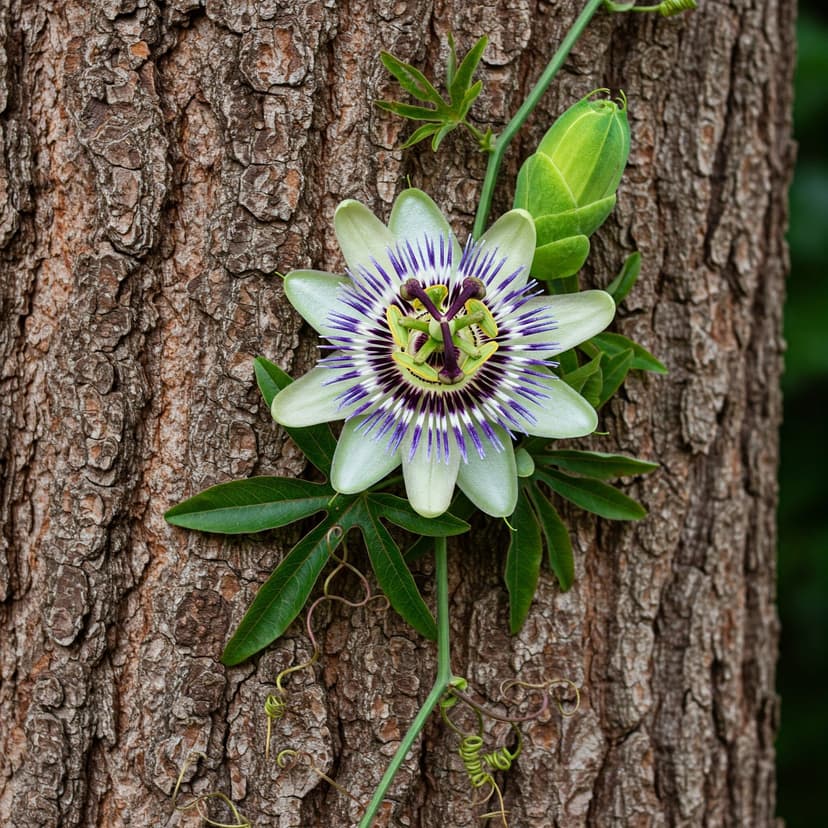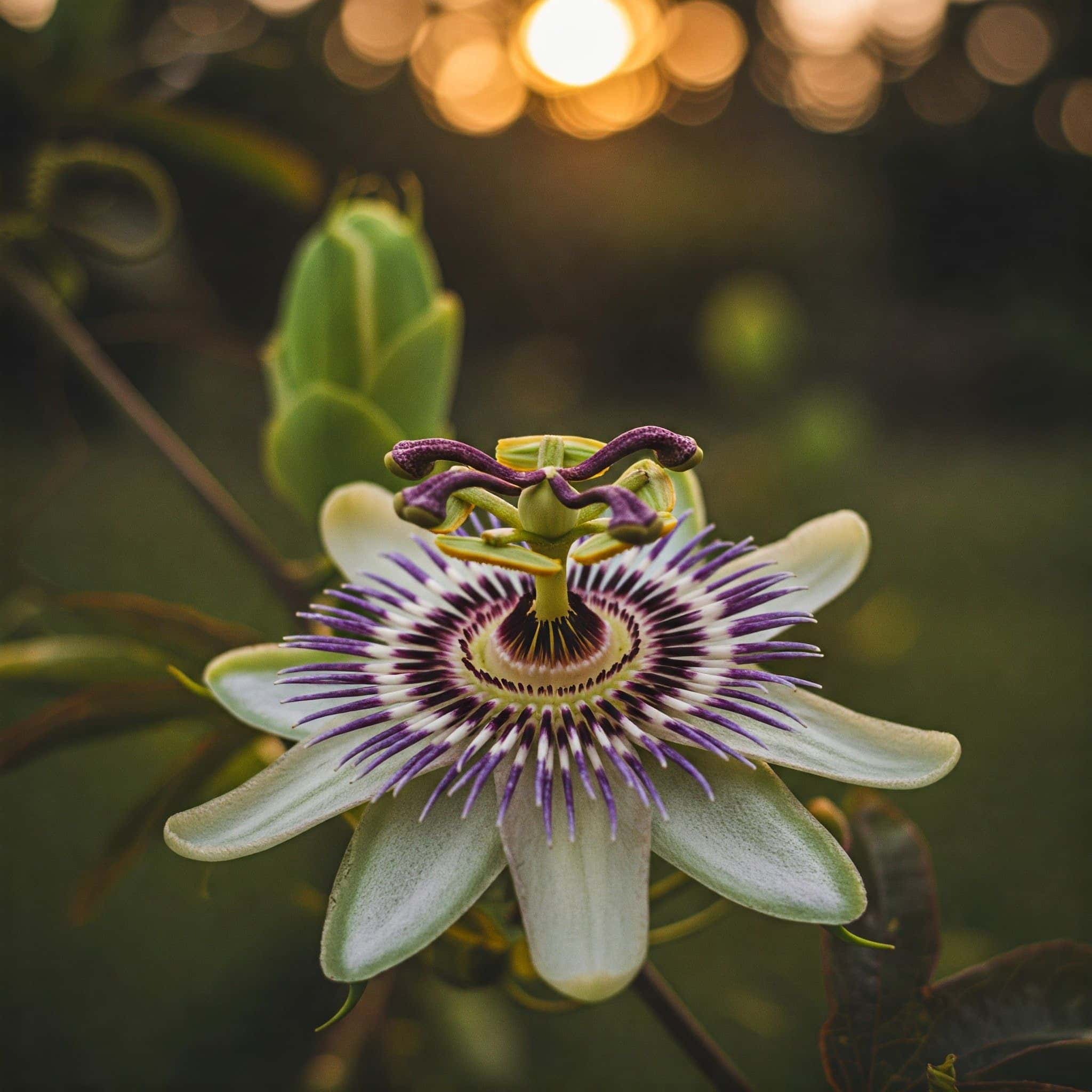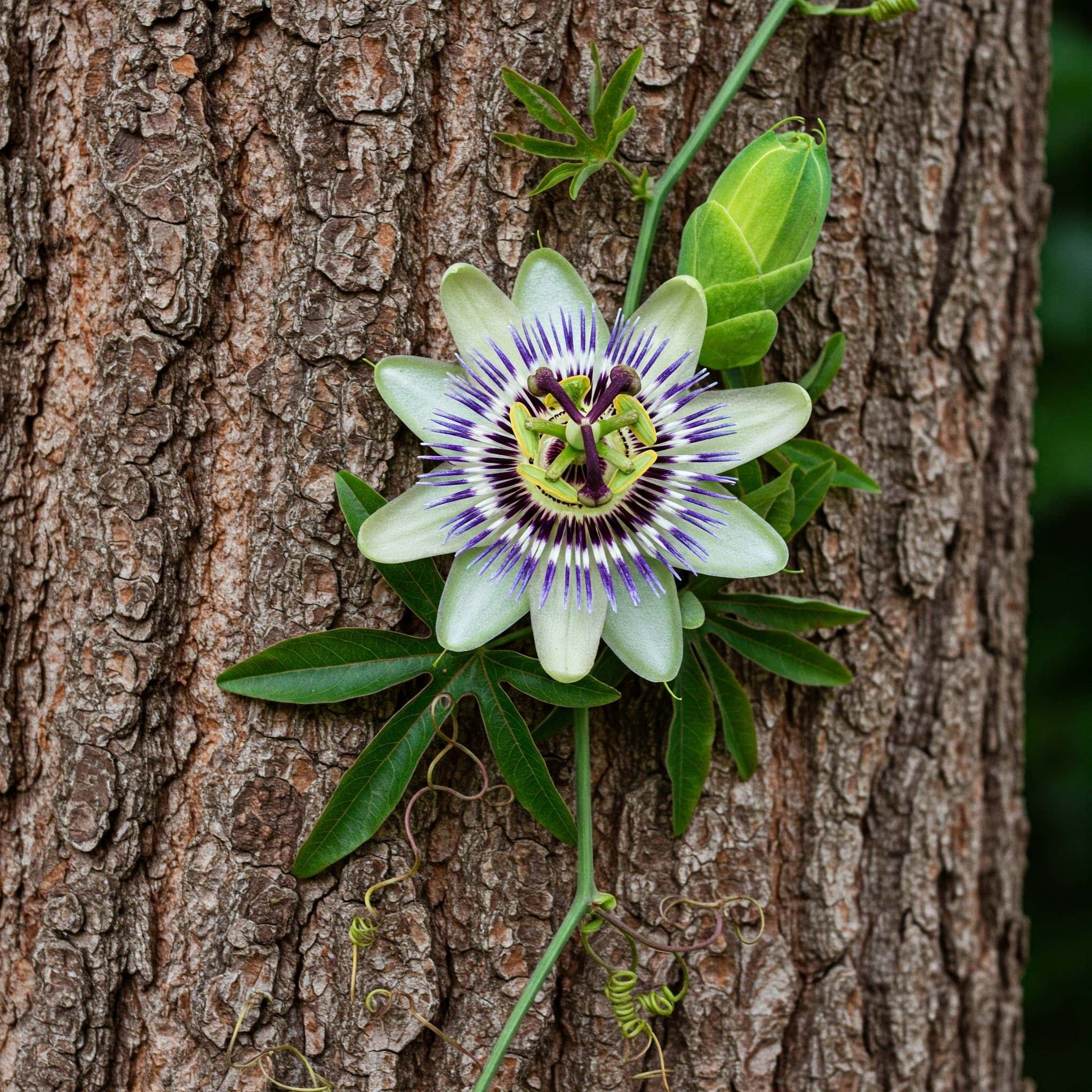


Common Name
Passionflower,
Maypop,
Apricot Vine,
Passion Vine
Family
Passifloraceae
Parts Used
Leaves, flowers, and stems
Native To
Native to the southeastern United States, Central America, and South America. Cultivated in many parts of the world, including Europe and Asia.
Historical and Traditional Uses:
Native American Medicine used as a sedative, pain reliever, and to treat wounds. Traditional European Medicine employed for calming anxiety, promoting sleep, and treating neuralgia. Folk Medicine known for alleviating symptoms of hysteria, restlessness, and insomnia.
Chemical Composition:
- Flavonoids: Apigenin, luteolin, quercetin
- Alkaloids: Harmine, harmol, harmaline
- Glycosides: Passiflorine
- Essential Oils: Beta-caryophyllene, linolenic acid
- Other Compounds: Sterols, amino acids, and maltol
Pharmacological Properties:
- Sedative and Anxiolytic: Enhances gamma-aminobutyric acid (GABA) activity in the brain, promoting relaxation and reducing anxiety.
- Antispasmodic: Relieves muscle spasms and nervous tension.
- Analgesic: Reduces mild pain and discomfort.
- Neuroprotective: Protects brain cells from oxidative stress.
- Anti-inflammatory: Reduces inflammation in nervous and muscular systems.
Evidence-Based Uses and Benefits:
- Promotes Relaxation and Sleep:
- Effect: Reduces sleep latency and improves overall sleep quality.
- Key Study: Ngan and Conduit, 2011 found that passionflower improved sleep quality in a controlled trial
- Reduces Anxiety and Stress:
- Mechanism: Increases GABA availability in the brain, calming the nervous system.
- Study Reference: Miyasaka et al., 2007 confirmed its anxiolytic effects in patients with generalized anxiety disorder.
- Relieves Menopausal Symptoms:
- Use: Reduces hot flashes, mood swings, and insomnia associated with menopause.
- Evidence: Clinical trials support its role in hormonal balance.
- Supports ADHD Management:
- Effect: Reduces hyperactivity and improves focus in children with ADHD.
- Supporting Study: A double-blind trial showed its effectiveness in managing ADHD symptoms.
- Pain Relief:
- Use: Effective in alleviating neuralgia, menstrual cramps, and minor muscle pain.
Counter-Indications:
- Pregnancy (may stimulate uterine contractions).
- Breastfeeding (insufficient safety data).
- Children under 6 years (unless supervised by a healthcare provider).
Side Effects:
- Mild drowsiness or dizziness.
- Gastrointestinal discomfort (e.g., nausea).
- Allergic reactions (e.g., skin rash, itching) in rare cases.
Drug Interactions:
- Sedatives and CNS Depressants: May enhance the effects of benzodiazepines, barbiturates, or alcohol.
- Antidepressants: Could interact with SSRIs or MAOIs.
- Blood Thinners: Potential for interaction with anticoagulant medications like warfarin.
- Herbs: Avoid combining with other sedative herbs like valerian or kava without professional guidance.
Research and White Papers with Links:
- Sleep Improvement: Passionflower for sleep enhancement
- Anxiety Relief: Effectiveness in generalized anxiety
- ADHD Management: Studies [highlight its calming effects on hyperactivity]
Conclusion:
Passionflower extract (Passiflora incarnata) is a well-researched natural remedy for promoting relaxation, reducing anxiety, and improving sleep quality. It's sedative and antispasmodic properties make it a valuable herbal supplement for stress relief and nervous tension. However, caution is advised when combining it with sedative medications or during pregnancy.


